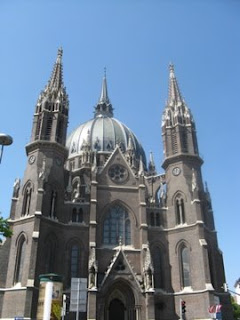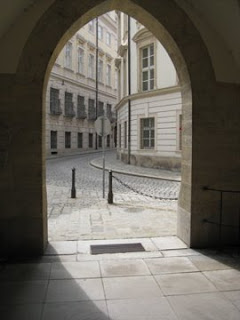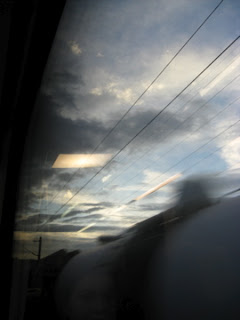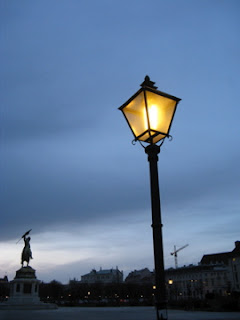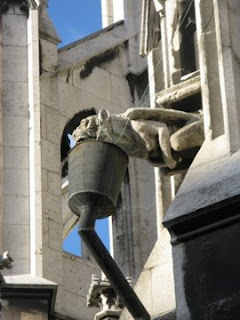Hapsburgs you might know:
Franz Ferdinand (a.k.a. that guy who got shot)
Famous for: Getting shot.
The Hapsburgs are a rather big deal here. And by kind of big deal I mean, those buildings in Vienna not somehow tangentially associated with them (or shamelessly hawking Motzart related goods) tend not to exist.
Unfortunately, one shooting in Sarajevo isn’t quite enough to give one an adequate understanding of some seven hundred years of imperial Austrian history. So I figured it would be time to fill you in on a bunch of the names and accomplishments that are essential to know in Austria and guaranteed to make everyone look at you funny if you casually reference them in public anywhere else.
So to begin!
Maximilian 1 K. 1508 -1519:
Famous for marrying his children in such a manner that by the end of it all the Hapburgs gained control of about half of Europe. Through an odd arrangement of marriages and natural deaths his son would eventually rule over Austria, Hungary, Bohemia, Burgandy (including the Netherlands), Spain, the vast majority of the New World, Portugal, the Holy Roman Empire, Southern Italy, and nominally the France. This, needless to say, did not go over well with the French.
Karl V K. 1519 – 1558: The Man!
Unfortunately inherited the wrong half of Europe at the wrong time. Spent his time conquering things, fighting off the Turks, subjugating the New World, trying to put down the Reformation, and generally bidding for hegemony. Managed to become Charles V, Carlos I, and Karl V. Famous for saying:
“I speak Spanish to God, Italian to women, French to men and German to my horse.”
Charles V
That was the high point, now for the 350 years of (artistically productive) decline.
Ludwig I: K. 1658 – 1705: One Ugly Dude
Lesson here: it’s a bad idea when cousins marry. Generally credited with starting Vienna’s musical tradition, ruled through a nasty bout of plague, and generally warred against the French. There is a bit of a rivalry there you see.
Karl VI: K 1711-1740: Bet poorly on the “Pagmatic Sanction”
Unable to produce a male heir he reworked Austrian laws so that Maria Theresa could take the throne. Worried that other nations would attack Austria is it was led by woman he gave away parcels of territories to his neighbors in return for their promise not to attack Maria (the so called “pragmatism” alluded to in the Pragmatic Sanction). Unfortunately many subsequently attacked Austria after his death and Prussia never signed. Early lesson in appeasement: don’t do it. Austria proper reaches its largest size under him.
Maria Theresia: K 1740-1780: Bet poorly on the French
Enlightened, ditched Britain as an ally in exchange for France before the 7-Years War, this ended up contributing to her loss of lost Silesia to the Prussians, notably a woman. Her rule is generally looked on as a cultural and political highpoint for Vienna (and all things Baroque). Mother of Maria Antoinette which resulted on second poor bet on the French.
Joseph II: K. 1780-1790: The Reformer
Described by Fredrick the Second (of Prussia as all Fredricks are) as capable of setting the world on fire with his ambition to change the world, Joseph set about reforming everything in accordance to Reason. Predicts the downfall of the French Monarchy on a visit to his sister, partitions Poland, frees the serfs, modernizes land control, eases taxes on the poor, breaks down guild power, extends freedom of religion (even to the Jews!), bans gingerbread. Unfortunately dies relatively unloved and most of his reforms are quickly reversed after his death. His chosen epitaph: "Here lies Joseph II, who failed in all he undertook.”
Franz II: K 1792-1806: Defeated by Napoleon, recovers through a crafty use of Titles. King of Austria from 1804-1835.
Last King of the Holy Roman Empire. Tries repeatedly to avenge the killing of the King of France, Napoleon thinks otherwise. Eventually forced to dissolve the Holy Roman Empire (although not before proclaiming himself King of the Austrian Hereditary Lands) and marry his daughter to Napoleon. This also turns out to not work out well for him once the Russian winter sets in. Fortunately (for him) after all the chaos his Prime Minister Clemens von Metternich shows up and does his thing, namely bringing about the greatest period of political reaction of the age.
Franz Joseph I: K. 1848-1916 The King
Rules forever. Builds the Ringstrasse, builds the subway system, builds a constitution for the country. His rule is marked by tragedy, there is an attempted assassination early on in his reign, his only son commits suicide, his wife is killed by an Italian anarchist, relations with Russia suffer in the Crimean war, he is defeated by the Prussians and the Italians, and his brother the temporary Emperor of Mexico is killed shortly after Cinco de Mayo. Nonetheless rules through a cultural golden age for Vienna and the Kingdom.
Franz Ferdinand K. Never, that would be the problem:
Got Shot
Karl I: K 1916-1918 But didn’t we already have six Karls?
Yes. Loses World War I and subsequently his job.
And that should be more than enough.












